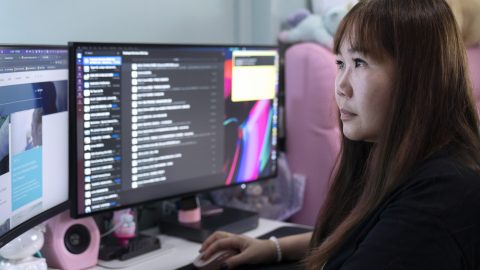Jean-Philippe Courtois: Meet the new breed of business leader driving enterprise innovation
If competing on product was the 20th century focus, then competing on business model is the focus of the 21st century. A new breed of entrepreneurial business leader is re-imagining what it means to be a digitally driven enterprise, and identifying how technology can grow revenues, diversify product lines and fend off hungry competitors.
Recently, I’ve been having more and more discussions with such forward-thinking business leaders. It seems to me that big enterprises are turning a corner. Thanks to digital transformation, they’re no longer lagging behind born-in-the-cloud startups. Rather, they’re using vast amounts of data, and tools like artificial intelligence (AI) and machine learning, to re-evaluate their business models, re-think product lines, optimize operations for maximum efficiency and create new value for their customers.
One of my favorite examples is Mattel. Famous across the world for Barbies and Hot Wheels, its leaders recognize that the company can’t afford to be complacent in this digital age. During our most recent meeting, the business leaders I spoke to articulated a new sense of purpose for Mattel and we discussed how they could create a new identity – moving from the traditional model of manufacturing millions of plastic toys to a company that aspires to become a trusted advisor for parents to enable their children’s early childhood development through connected play from their very first days to their early teens.
This 75-year-old company is now preparing for the future, not only by evolving its traditional product lines, but by completely rethinking its go-to-market strategy with a new digital platform. As a result, it has started to expand its offering to include products like Aristotle, an AI-powered smart hub that can require kids to say “please” before the device will respond, helping parents to encourage good manners in their kids.
Another business breaking with tradition is Publicis Groupe, a bastion of the advertising and public relations world, founded in 1926. The group’s leaders were quick to spot that traditional advertising budgets are shrinking and that today’s consumers are engaging with brands in new ways. The tone of our recent discussions has evolved from focusing purely on IT capabilities to a much deeper business discussion. Together we’ve explored how the group can create a set of digital apps and services that will help them generate new, digitally relevant business outcomes.
For example, the group saw that it could apply AI to its goldmine of data to establish a deeper understanding of the brands it represents, and the consumers who buy from those brands, putting its agencies in a better position to proactively offer sound strategic counsel and new products to their clients. Digital agency SapientRazorfish is now building an application for a retailer which detects the details and features of a customer’s face, and then recommends a matching beauty product, with Cortana Intelligence Suite and Microsoft Cognitive Services.
Innovation is being incubated and executed within big, traditional enterprises at a breadth and depth that I haven’t seen before. The technology conversations that I’m having with business leaders are no longer compartmentalized, or focused on one system, solution or tool. They’re about the digital drivers that are underpinning the entire organization, touching the vast majority of revenue streams. As someone who has been at Microsoft for more than 30 years, it’s incredibly exciting to be having these new conversations, with these new types of leaders, as together we embrace a more digital future.








